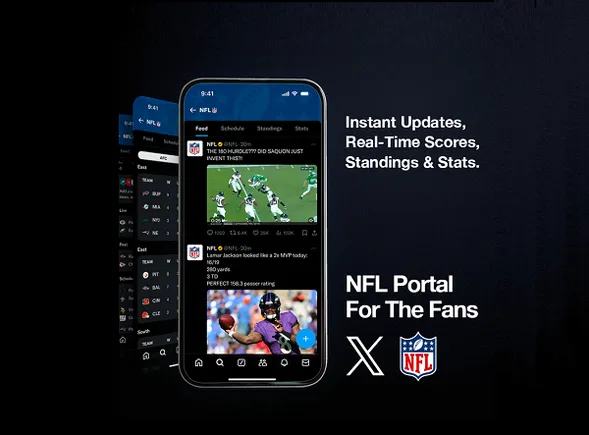How Apple's secretive ad tech strategy goes beyond search ads
With 600-plus Ad Platforms jobs open, ad tech leaders say that Apple will undoubtedly 'expand those pipes.'

When Apple CEO Tim Cook was asked recently about the company’s ad business strategy, Cook kept his response short: “In terms of us selling ads, we have a search ads business across the App Store,” he said last month in a second-quarter earnings call. No one in ad tech believes Apple will be content simply serving search ads inside the App Store, and a recently uncovered job listing that refers to a demand-side platform suggests Apple has larger goals in advertising.
That term, demand-side platform (DSP), shows Apple has broad ambitions in advertising, according to ad tech leaders. Ad tech specialists were not surprised, but Apple has been secretive about its advertising business. The job listings for a DSP specialist point to that discretion, saying: The job requires “innovating on some of Apple’s most confidential and strategic plans.”
“Our platform runs and delivers advertising auctions to match supply (customers) with demand (advertisers),” read the job listing.
Apple did not return a request for comment on the job post. Last week, Digiday reported on the job post, which has appeared several times on Apple’s career site since April. Apple’s career site reports it has more than 600 job posts in its Ad Platforms division.
“I really do believe that Apple is going to expand those pipes and provide more ways for advertisers to buy media,” said Charles Manning, CEO of Kochava, a mobile ad measurement and attribution platform. “One could assume that it’s more than just keywords [in search ads], it will be display, video and related ads.”
Apple’s mobile DSP could help marketers bid on programmatic ad space on apps, but it’s unclear how far Apple would go.
“What they’re looking into, it’s not just a DSP, it’s also an SSP,” or supply-side platform, said one mobile ad network CEO, who spoke on condition of anonymity. Apple could have “literally every single piece of the ecosystem wrapped up.”
An SSP would fill out Apple’s ad technology to also serve the publishers, which are the app developers. The largest internet ad businesses such as Google and Amazon, run both demand side and supply side platforms.
Apple does not say how much revenue it gets from ads, but services is its fastest-growing segment, which includes ads, subscription fees and revenue-sharing from millions of app developers. Apple also has Apple News, which runs ads alongside content from major publishers, including NBC, CNN, Condé Nast and Hearst. And Apple owns Apple TV.
Last month, a Bank of America research analyst estimated Apple advertising could reach $20 billion if it opens ads up on Apple Maps and Apple TV. The researcher also estimated Apple’s search ads business already accounts for $5.3 billion in revenue a year. Apple made $83 billion in the second quarter, mostly from selling devices like iPhones, but services revenue grew 12% to $19.6 billion. Meanwhile, Apple is seeing how companies like Amazon are minting money from ads, and even Netflix reversed its longstanding opposition to advertising and teamed up with Microsoft to sell ads on the streaming service.
There also have been signs of an economic slowdown, which has affected advertising budgets; marketers are looking for new ways to drive performance through ads. That seems to be a convenient gap Apple could fill with a more sophisticated advertising platform.
Apple has become somewhat of an anti-hero in internet advertising because it has taken such a hard line on privacy and data. Since 2017, Apple has been ripping out pieces of the ad tech ecosystem that marketers relied on to target and measure ads. Apple has removed key data signals, such as third-party cookies on the Safari web browser and the Identifier for Advertisers, IDFA. Apps on Apple’s platform have to ask consumers, through a strictly worded prompt, if they will accept tracking by the developer.
Meta, which owns Facebook and Instagram, has been a leading opposing voice, claiming that Apple’s data policies have harmed its business, estimating a $10 billion hit to revenue this year. Meta also has said that small businesses are harmed because they can’t target ads to local customers and grow. Marketers can’t measure ads effectively, so they reduce spending.
In its job listing, Apple said it was developing a mobile DSP to advance privacy, while also helping marketers reach consumers and helping developers to monetize their apps. “Ad Platforms takes a customer-centric approach to building privacy-preserving and principled advertising products, platforms and algorithms that are secure, performant and innovative,” according to the DSP job post.
Kochava's Manning said that Apple clearly had plans to expand its footprint in advertising from the start. “[Apple] wants publishers to monetize apps with ads,” Manning said, “in a privacy-safe way, where data exhaust doesn’t get generated.” Apple will likely need DSP and SSP capabilities for that, Manning said.
Therran Oliphant, senior VP of data and technology at Essence Global, the media buying agency within GroupM, characterized Apple’s advertising strategy as audacious, in a Twitter post last week. “I'm sure they're going to start with Search Ads, but watch how quickly they move to offering targeting products inside App Store apps,” Oliphant said.
Advertisers will “gobble up those ad slots like Joey Chestnut staring at a plate of franks on Independence Day,” Oliphant tweeted.

 Lynk
Lynk 


















.jpg&h=630&w=1200&q=100&v=6e07dc5773&c=1)












